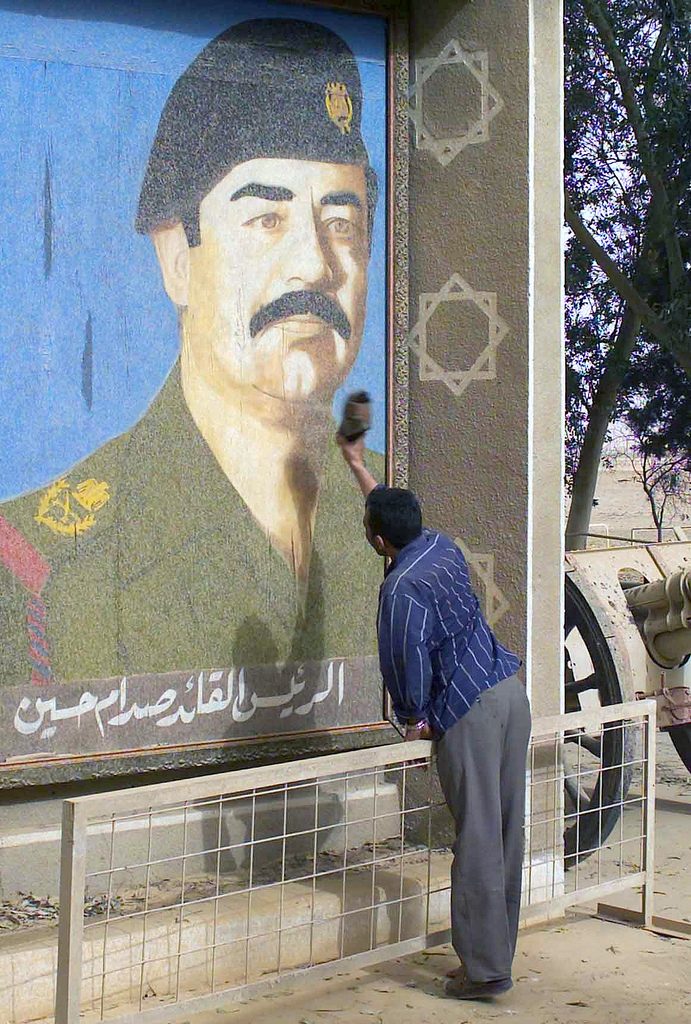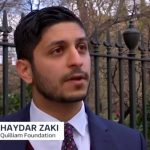By Haydar Zaki
House-Muslim. Uncle Tom. These are just some of the terms thrown at me because, as a Muslim, I have a different political outlook to others. Fetishising over my physical appearance and religious identification, the groups that use these (frankly racist) terms so carelessly aim to portray me as one who has no agency, and is merely a slave or a “sell-out” to their community and cause.
My abandonment of the tribal political mentality was the first step to warrant such a slanderous response. Many of us, not just in the Muslim community, suffer from this, perceiving the ‘other’ of doing all bad, and ‘us’ doing all good.
Clear examples are shown when ISIS atrocities happen and that some Muslims are more focused on Islam’s PR, than they are acknowledging that ISIS are justifying their attacks by religious scripture. Ergo, a frank discussion on scripture is needed to render ISIS’ ideology.
These communities have prioritised PR and sensationalising anti-Islamic cartoons over this needed challenge to religious justification, even for the sake of the many Muslims who are consistently victim to ISIS atrocities. The same goes for the ultra-nationalist tribal political mentality, whereby an isolated incident of a refugee committing a crime is generalised to be a characteristic of all the refugees (or even those from Middle-Eastern heritage).
The removal of tribal political mentality has meant that I have my values of universal rights and liberty, and I will challenge any idea that comes forth and goes against them. I will both challenge any Islamic doctrine that stifles freedom of expression and I will challenge any British policy (such as the proposed counter-extremism banning and disruption orders) that go against liberty.
There is a great need now to build a partnership of different identities – Muslims, Jews, ex-Muslims, Atheists, Christians, etc. – for our universal values. A new partnership of ideals over identities, challenge over censorship, answers over apologia and human rights above all.
This week is #MyIslam for Quilliam. My Islam is pluralistic, and so I take the values from my faith to promote working together with those of different faiths (and no faith) on the shared common goal against extremism. This should not be an atheist vs theist debate or a faith vs faith debate, but humanitarians (of different identities) vs extremist ideas (wherever they may come from). Every extremist movement tries to divide ‘us’ and ‘them’ – we need to overcome this to ensure extremism will always be left as a fringe movement.

I would like to end on a personal and emotional anecdote of my own. My grandfather was a professor in Persian literature in Baghdad, Iraq. As Saddam Hussein became increasingly extreme, authoritarian and suspicious of Iranian/Persian influence, more pressure was put on my grandfather to flee for his life. A speech Maajid Nawaz made stated every extremist movement begins by clamping down on the writers, journalists and artists – these words were painfully true to me.
After having to bury his books in his garden and then fleeing to London, he began to continue his work as a professor. My grandfather fled to London because of the authoritarian extremes that dictatorships and theocracies enforce, and found refuge in London because of the freedom and liberal values that I so cherish today.
One of his many published books is in the School of Oriental and African Studies (SOAS) library (where he also lectured) in the University of London. Those same aforementioned values that gave shelter to my grandfather are the same values that get me called ‘racist’, ‘Islamophobic’, ‘House Muslim’ and ‘native informant’ when I promote them to large student political movements at SOAS. It will forever be devastating to me that a place which has so much relevance to me, is just one of many universities that seemingly hate the fact I promote the values of freedom that saved my refugee family.
These are the hangovers of tribal politics. For any community that adopts it on large, it becomes increasingly regressive and isolationist, prompting unrealistic and romanticised images of one’s self-identity. Most dangerously, this then leads to apologia for the barbaric and the extreme as it is rationalised never to be truly the fault of ‘us’ but always the fault of ‘them’. Let humanitarianism be our common and uniting identity for the betterment of human progression – ‘Ideals over Identities’.
 Haydar Zaki is the Quilliam Foundation’s outreach and Right2Debate program coordinator. Haydar has worked extensively in conducting outreach to further the values of universal human rights. Most recently, Haydar has a dominant role in the free speech campaign Right2Debate to encourage Student Unions to challenge bigotry, and not free speech.
Haydar Zaki is the Quilliam Foundation’s outreach and Right2Debate program coordinator. Haydar has worked extensively in conducting outreach to further the values of universal human rights. Most recently, Haydar has a dominant role in the free speech campaign Right2Debate to encourage Student Unions to challenge bigotry, and not free speech.
Visit the Right2Debate website here. Follow him on Twitter.

